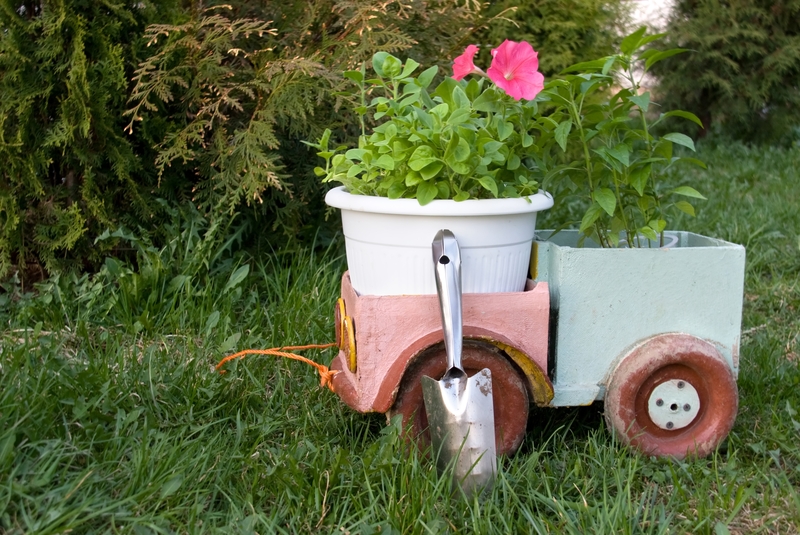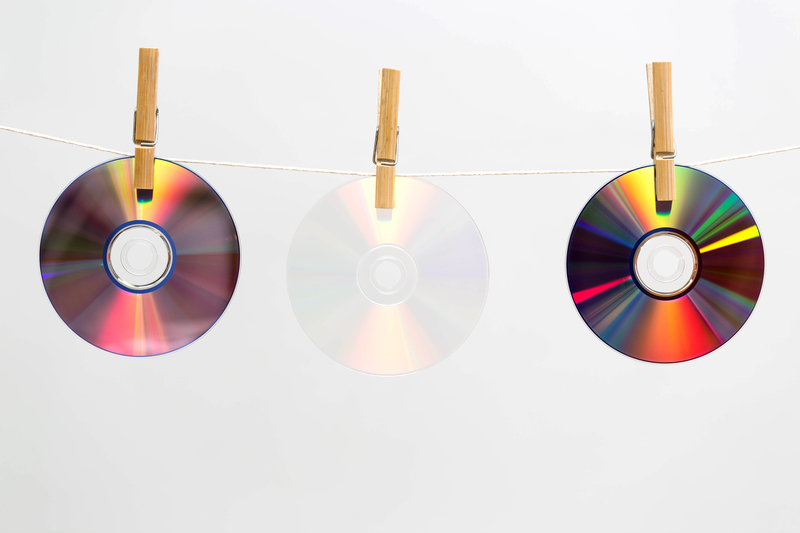Transform Your Well-being: Stress Relief Through De-cluttering
Modern life often feels chaotic, with our physical and digital environments mirroring the stress and anxiety within our minds. But what if the key to alleviating stress lies not only in yoga or meditation, but also in organizing and simplifying the spaces around us? De-cluttering is more than a trend--studies consistently show that it has a profound impact on mental health, clarity, and overall happiness. In this comprehensive article, explore how stress relief through de-cluttering can transform your well-being, offering you actionable strategies, expert insights, and a renewed sense of balance.
Why Clutter Creates Stress
It's widely recognized that clutter affects more than just our homes--it affects our minds. Piles of unsorted mail, overstuffed closets, and messy desktops serve as constant reminders of tasks left undone, subtly increasing anxiety. Psychological research underscores the link between mess and stress. When we're surrounded by disarray, our cognitive load increases, making it harder to focus, relax, or find joy in our environment.
Understanding the Science
- Visual Distraction: Clutter bombards our brains with excessive stimuli, forcing us to process unnecessary information and making it difficult to concentrate.
- Procrastination Loop: Clutter is a visual representation of unmade decisions, which can trigger feelings of guilt or overwhelm.
- Stress Hormones: Studies show that crowded, chaotic spaces can heighten the production of cortisol, the body's primary stress hormone.
*By targeting clutter, you're not just tidying up--you're taking a meaningful step towards mental clarity and emotional peace.*

Health Benefits of De-cluttering for Stress Relief
Embracing de-cluttering as a stress relief method has measurable effects on both mental and physical health. Understanding these benefits can motivate you to get started today.
Mental Health Improvements
- Reduced Anxiety: A tidy space helps calm the mind, minimizing intrusive thoughts and worries.
- Improved Focus: Clearing your environment minimizes distractions, enhancing productivity and mental sharpness.
- Enhanced Mood: Letting go of clutter boosts feelings of accomplishment, pride, and overall contentment.
Physical Health Advantages
- Better Sleep: Neat spaces lead to more restful, relaxing sleep, essential for overall health.
- Increased Energy: An organized environment eliminates the stress of searching for items and reduces fatigue.
- Fewer Allergens: Regular de-cluttering minimizes dust and allergens, promoting a healthier home.
*These well-being transformations illustrate the extraordinary potential of stress relief through de-cluttering--it's a simple action with profound results.*
Common Types of Clutter You Need to Address
Not all clutter is created equal. Identifying the most problematic areas can help you target your efforts for significant impact.
Physical Clutter
- Excess Possessions: Clothes you never wear, gadgets you don't use, or duplicate items filling your drawers.
- Piles of Paper: Old bills, receipts, magazines, and warranties you "might need someday."
- Unfinished Projects: DIY crafts, abandoned hobbies, or broken items awaiting repair.
Digital Clutter
- Overflowing Email: Thousands of unread messages create digital overwhelm.
- Unorganized Files: Random downloads and scattered documents reduce efficiency.
- Social Media Noise: Following too many accounts or engaging in online clutter can spike stress levels.
Emotional Clutter
- Old Journals or Keepsakes: Holding onto items with negative associations can anchor you in the past.
- Unresolved Tasks: Lingering to-dos and unfinished business clutter your mental space.
Each type of clutter demands a different approach--but the underlying benefit is the same: stress relief through thoughtful de-cluttering.
Step-by-Step Guide to Transformative De-cluttering
Ready to revolutionize your well-being with de-cluttering for stress relief? Here is a research-backed, step-by-step guide to get started:
Step 1: Start Small and Set Realistic Goals
- Begin with a Single Space: Choose an area that bothers you most, such as your entryway or desk.
- Set a Timer: Work in short bursts (10-30 minutes) to avoid overwhelm.
- Define Success: Whether it's clearing a drawer or a whole room, acknowledge your accomplishment.
Step 2: Sort and Simplify
- Create Categories: Use bins or bags for "Keep," "Donate," "Recycle," and "Discard."
- Touch Everything Once: Don't let decisions linger. Quickly choose an action for each item.
- Ask Key Questions: "Do I love this? Do I need this? Does this support my current life?"
Step 3: Organize What Remains
- Designate 'Homes': Every item should have a logical, accessible place.
- Invest in Storage Solutions: Use boxes, baskets, and labels to stay organized.
- Prioritize Accessibility: Frequently used items should be easy to reach.
Step 4: Implement Lasting Habits
- Daily "Reset" Routines: Spend a few minutes each day maintaining order.
- Practice the "One In, One Out" Rule: For every new item brought in, remove another.
- Schedule Regular Reviews: Monthly or seasonal purging prevents clutter from building up.
De-cluttering for Stress Management: Tips and Tricks
Here are practical suggestions for reducing stress by de-cluttering in everyday life:
Embrace Minimalism
- Adopt a mindset of quality over quantity. Only keep and display meaningful items.
- Limit surface decor to essentials - a few favorites can uplift rather than overload your space.
Involve the Whole Family
- Make de-cluttering a team activity for less resistance and more fun.
- Assign children age-appropriate tasks to build lifelong organizational habits.
Make it Enjoyable and Rewarding
- Play music or set a fun timer.
- Celebrate progress--enjoy a favorite snack or activity once a goal is met.
Don't Forget Digital Spaces
- Unsubscribe from unwanted emails and clean up your inbox weekly.
- Remove unused apps and organize files into folders for a more efficient work life.
De-Cluttering as a Mindfulness Practice
Did you know that de-cluttering and mindfulness go hand in hand? The act itself can become a conscious, meditative practice. Here's how:
- Focus on the Present: Pay attention to each action, the feel of the items, the gratitude for what you keep, and the relief in what you release.
- Let Go of Guilt: If an object no longer serves you, it's okay to part with it. Honor the memory, then move forward.
- Visualize Positive Change: Picture your clear space as a sanctuary for relaxation and creativity.
*Viewing de-cluttering as an act of self-care transforms it from a chore into a powerful stress management tool.*
Overcoming Emotional Barriers to De-cluttering
Letting go can be tough, especially with items holding emotional significance. Here's how to navigate common obstacles:
- Attachment to Memories: Keep one meaningful item instead of the whole collection, or take a photo for posterity.
- Fear of Future Need: Remind yourself of the rarely-used items you haven't missed in years; trust in your ability to adapt.
- Guilt Over Waste: Donate, recycle, or upcycle to ensure your possessions benefit others.
*The true value of your belongings lies in their usefulness and the joy they bring--not their mere presence.*
Long-Term Impact: More Than Just a Tidy Home
The real magic comes after repeated stress relief through de-cluttering. People report:
- Greater Productivity: Clear spaces foster creativity and motivation.
- Improved Relationships: Shared tidiness reduces household arguments and increases harmony.
- More Free Time: No more searching for lost items, freeing you up for passions and hobbies.
- Sustainable Well-being: Ongoing de-cluttering habits protect your mental and emotional health over time.

Frequently Asked Questions About De-cluttering and Stress Relief
How often should I de-clutter to maintain stress reduction?
Set a regular schedule that fits your lifestyle--try a light decluttering every week and a deeper session every few months to keep chaos at bay.
Can hiring a professional organizer help with stress relief?
Absolutely! Professional organizers offer guidance, motivation, and techniques to speed up the process and reduce overwhelm for those struggling to begin.
What if my partner or family resists de-cluttering?
Model positive habits and invite others gently, focusing on shared benefits like more space and less tension. Open communication is key.
Are there any apps or tools for digital de-cluttering?
Yes! Apps like Unroll.Me, Google Files, and Trello or Notion for organization help you streamline your digital life, reducing virtual clutter stress.
Your Journey Starts Now: Transform Your Life with Stress Relief Through De-cluttering
De-cluttering is much more than cleaning--it's a transformative journey to stress relief and holistic well-being. By systematically clearing out the physical, digital, and emotional clutter from your life, you pave the way for increased tranquility, clarity, and happiness. Start small, be consistent, and nurture environments that support your best self. As the saying goes, "Outer order creates inner calm." Today, take your first steps towards a stress-free, harmonious space--and a brighter, lighter you.